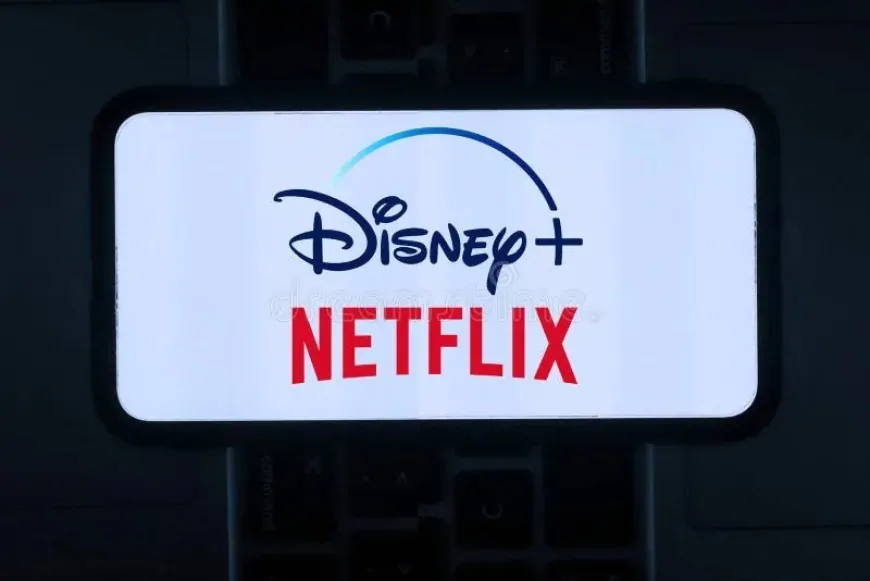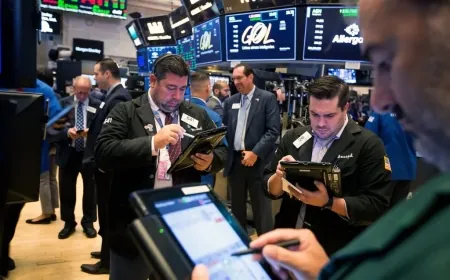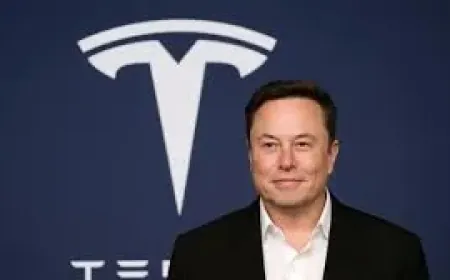Netflix, Disney Shares Fall After Trump Pushes for 100% Tariff on Foreign-Made Films
Netflix and Disney stocks tumbled as Trump called for a 100% tariff on all foreign-made films—shaking Hollywood and raising fears of global disruption in film production and streaming.

Shares of major entertainment companies dropped Monday morning following former President Donald Trump's call for a 100% tariff on all films produced outside the United States. The market reaction was swift, with Netflix (NASDAQ: NFLX) and Warner Bros. Discovery (NASDAQ: WBD) both falling around 4% in early trading, while Disney (NYSE: DIS) and Paramount (NASDAQ: PARA) also registered notable declines.
The proposal, posted by Trump on Truth Social late Sunday, aims to penalize the import of foreign-made films in an effort to protect what he called a “dying” American film industry. No studios or production companies had publicly responded to the statement by the time of market open.
Trump Blames Foreign Incentives for Hollywood Decline
In his social media post, Trump accused foreign governments of luring away U.S. filmmakers through incentives, which he labeled a coordinated attack on the domestic entertainment sector. He described the situation as a national security concern, asserting that “Hollywood, and many other areas within the U.S.A., are being devastated.”
The statement sent shockwaves across a film industry already under pressure from pandemic-era losses, prolonged labor strikes, and changing viewing habits. While the former president’s message contained no formal policy details, it sparked immediate investor concerns about international productions and future content costs.
Global Blockbusters in Limbo as Production Locations Face Scrutiny
Trump’s remarks arrive at a sensitive time, just weeks after China signaled plans to scale back the import of Hollywood films in response to heightened U.S. tariffs on Chinese products. The threat of reciprocal action looms large for studios that rely on international box office returns.
A number of upcoming blockbusters could be caught in the crosshairs. Disney’s Marvel titles "Avengers: Doomsday" and "Spider-Man: Brand New Day" were filmed in London, while James Cameron’s "Avatar: Fire and Ash" was produced in New Zealand. Other notable productions include "Mission: Impossible — The Final Reckoning" from Paramount, shot across multiple countries, and Lionsgate’s "Ballerina," a John Wick spin-off filmed in the Czech Republic. Lucasfilm’s "Star Wars: Starfighter" is also set for production in the UK.
Unclear Policy Details Leave Studios and Investors Guessing
Despite the initial market reaction, analysts noted that it’s too early to determine how such a tariff would be implemented, if at all. Critical questions remain around the scope of the tariffs: Would they apply only to theatrical releases or also to streaming content? Would international co-productions be targeted? How would compliance be enforced?
Ben Swinburne, a media analyst at Morgan Stanley, cautioned that the lack of formal guidelines makes it difficult to assess the full impact. “100% tariffs on some or all of a film’s cost could lead to fewer projects, higher production expenses, and lower earnings across the board,” he wrote in a Monday note.
Netflix Seen as Especially Vulnerable in Global Production Landscape
Among the companies facing heightened risk, Netflix stands out. As the world’s largest producer of original film content, with movies accounting for roughly 25% to 30% of its total viewing hours, the company relies heavily on international production hubs for shooting, editing, and post-production.
Analysts warn that tariffs could interrupt global workflows and increase the cost of content, while also opening the door for foreign governments to retaliate with their own restrictions on U.S. platforms. “This could encourage other countries to block or tax American streaming services,” Swinburne added.
Industry Waits for Clarity Amid Rising Trade Tensions
For now, the entertainment world is left to watch and wait. Without a formal policy framework or legislative backing, Trump's proposal remains a political message rather than a regulatory change. Still, the volatility in media stocks signals just how seriously markets are taking the threat.
Studios and streaming platforms with cross-border operations may need to prepare for a more fragmented production landscape, especially as trade tensions continue to spill into the creative sector.
Also Read: Fed Chair Powell Faces Political Heat as Trump Blames Fed for Slowing Economy
































































